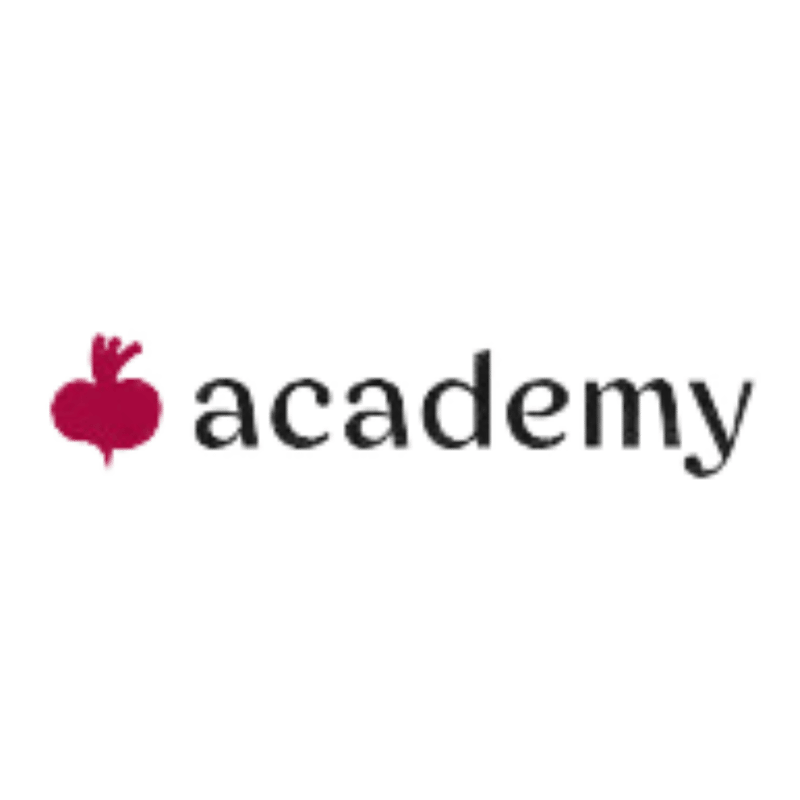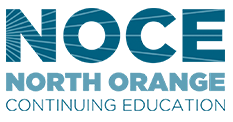
Financial aid (may be available)

Financial aid (may be available)

Financial aid (may be available)

Financial aid (may be available)
No cost info

$220 to start
$440 total

No cost info
$3,550 total
Financial aid (may be available)
OPTI Medical Systems supports the Online Quality Assurance Program (QAP) to add value to your OPTI CCA-TS2 analyzer. Online QAP facilitates the evaluation of quality control (QC) data with that of your peers for trends and shifts. Do not miss out on these valuable services that OPTI Medical provides OPTI analyzer users at no additional charge.
No cost info
The Graduate Certificate in Quality Assurance Compliance provides an in-depth knowledge of the global regulatory and compliance requirements for the development, marketing approval, and clinical utilization of biomedical products in today’s dynamic global healthcare environment.
No cost info
This program is designed for the chemist, bio-chemist or biologist in the pharmaceutical and biologic industry new to quality assurance and control, and is beneficial to senior year undergraduates and graduate students (using concurrent enrollment) interested in a career in QA/QC.
The program focuses on the quality requirements for the production and control of biologics and drugs, and the differences between quality control and quality assurance and their interaction with manufacturing. It highlights the importance of implementing and maintaining a quality system during the early stages of drug development, including the plethora of documents and controls necessary to make such a system effective. Guidelines and regulations from the FDA and the California State food and drug branch regulate the production of drug products. Quality Assurance (QA) monitors the manufacturer's compliance to these guidelines and regulations.
Instruction covers how to write, issue and control SOPs; manufacturing directions; and how to review and archive a batch history and other relevant documents. Emphasis is placed on conducting inspections and vendor audits for compliance to cGMPs to include contract manufacturers, bulk pharmaceutical chemical manufacturers and contract test laboratories. The program covers cGLPs and their applications to audits of facilities that provide toxicological services. Details on compiling, writing and archiving audit reports is provided.
No cost info
Quality assurance training helps applicants for understanding the basic concepts of information technology and software testing which help them excel as Quality Assurance (QA) specialists. The quality assurance course also covers physical products in determining defects in manufactured products and preventing them, pre-production, SDLC-Software Development Life Cycle, Production Environment vs Sandbox Environment, Mantis Bug Tracker, and many more. During the QA online training, you will learn how to decode the application of dynamic and static techniques, conduct walk-thoughts and audits, create a quality analysis, perform boundary value analysis, and test plan hands-on through this Quality assurance certification training.
No cost info
Mount St. Mary’s University is home to Maryland’s only certificate in quality assurance and regulatory science (QA/RS). The fully online program prepares you to lead your company through the efficient delivery of high-quality products within a competitive market.
No cost info
Are you looking to start a career in Quality Assurance (QA)? Do you want to find quality assurance classes near you in Charlotte? Look no further! In this blog post, we will discuss what quality assurance is, the training requirements for QA professionals, what to look for in a quality assurance class, what to expect from the day-to-day class, the certification process, how to find a job in the field, other classes someone can take after becoming a quality assurance professional, and more.

Quality Assurance (QA) is a critical component in many industries, including manufacturing, healthcare, software development, and more. It involves ensuring that products, services, and processes meet or exceed customer expectations. QA professionals play a vital role in identifying and resolving defects or issues to deliver high-quality products and services to consumers.
Quality Assurance is a systematic approach to ensuring that products, services, and processes meet specified requirements. It involves monitoring, evaluating, and improving the quality of deliverables throughout the entire development or production lifecycle. QA professionals use various techniques and tools to identify defects, prevent issues, and ensure compliance with industry standards and regulations.
To become a quality assurance professional, you typically need a combination of education and hands-on experience. While a bachelor's degree in a relevant field, such as engineering or computer science, can be beneficial, it is not always required. Many QA professionals gain the necessary skills and knowledge through vocational training programs or certifications.
When searching for quality assurance classes near you in Charlotte, there are several factors to consider to ensure you find the right program for your needs. Here are some things to look for:
Accreditation: Ensure that the training program is accredited by a recognized accrediting body. Accreditation ensures that the program meets certain quality standards and that the certification you receive upon completion is recognized by employers.
Curriculum: Review the curriculum to ensure it covers all the essential topics and skills needed for a career in quality assurance. Look for courses that include topics such as quality control, statistical analysis, process improvement methodologies, and regulatory compliance.
Hands-on Experience: Practical experience is crucial in quality assurance. Look for programs that offer hands-on training, internships, or opportunities to work on real-world projects. This will give you valuable experience and make you more competitive in the job market.
Instructor Qualifications: The qualifications and experience of the instructors can greatly impact the quality of the training you receive. Look for instructors who have industry experience and certifications in quality assurance.
Job Placement Assistance: Consider programs that offer job placement assistance or have a strong network of industry connections. This can greatly increase your chances of finding employment after completing the program.
In a quality assurance class, you can expect to learn a variety of skills and techniques to effectively evaluate and improve the quality of products, services, and processes. Here are some things you may experience in a quality assurance class:
Classroom Lectures: You will attend lectures where instructors will cover various topics related to quality assurance. These lectures may include discussions, presentations, and demonstrations of quality assurance techniques and tools.
Hands-on Activities: Quality assurance classes often include hands-on activities to reinforce learning. You may participate in group projects, case studies, or simulations to apply the concepts and techniques you have learned.
Lab Work: In some programs, you may have access to a lab where you can practice using quality assurance tools and software. This allows you to gain practical experience in a controlled environment.
Group Work: Collaborative learning is often encouraged in quality assurance classes. You may be assigned to work in groups to solve problems, analyze data, or perform quality audits.
Assessments and Exams: Like any educational program, you can expect assessments and exams to evaluate your understanding and progress. These may include quizzes, tests, or practical exams.
After completing a quality assurance class, you may have the opportunity to obtain a certification in quality assurance. Certification can demonstrate your competence and commitment to the field and can enhance your job prospects. The certification process typically involves the following steps:
Eligibility Requirements: Determine if you meet the eligibility requirements for the certification. This may include a combination of education, work experience, and specific training.
Application and Fee: Complete the certification application and pay the required fee. The application may require you to provide documentation of your education, experience, and training.
Exam Preparation: Prepare for the certification exam by reviewing the exam content outline, studying relevant materials, and taking practice exams. Some programs may offer exam preparation courses or resources to help you prepare.
Certification Exam: Schedule and take the certification exam. The exam may be administered online or in-person and may consist of multiple-choice questions, case studies, or practical exercises.
Certification Maintenance: After obtaining the certification, you may be required to fulfill certain maintenance requirements to keep your certification active. This may include earning continuing education credits or renewing your certification periodically.
Once you have completed your quality assurance training and obtained certification, it's time to start your job search. Here are some tips for finding a job in quality assurance:
Update Your Resume: Highlight your education, certification, and relevant experience on your resume. Tailor your resume to highlight your skills and accomplishments in quality assurance.
Network: Attend industry events, join professional organizations, and connect with quality assurance professionals on platforms like LinkedIn. Networking can lead to job opportunities and provide valuable insights into the industry.
Online Job Boards: Utilize online job boards to search for quality assurance job openings. Websites like Indeed, LinkedIn, and Glassdoor often have listings for quality assurance positions.
Company Websites: Visit the websites of companies in your desired industry to search for job openings. Many companies post job listings directly on their websites.
Staffing Agencies: Consider working with staffing agencies that specialize in placing quality assurance professionals. They may have access to a wider range of job opportunities and can help match you with the right position.
Once you have established yourself as a quality assurance professional, there are additional classes you can take to further enhance your skills and advance your career. Here are some examples of other classes or certifications you may consider:
Six Sigma: Six Sigma is a methodology for process improvement that aims to reduce defects and variation in processes. Six Sigma certification can be valuable for quality assurance professionals.
Lean Manufacturing: Lean manufacturing focuses on eliminating waste and improving efficiency in manufacturing processes. Taking a lean manufacturing class can expand your knowledge and skills in process improvement.
Quality Management Systems: Quality management systems, such as ISO 9001, provide a framework for managing and improving quality within an organization. Taking a class on quality management systems can help you understand and implement these systems effectively.
Risk Management: Risk management involves identifying and mitigating risks to ensure the success of projects and processes. A class on risk management can enhance your ability to identify and address potential risks in quality assurance.
Quality assurance is a critical field in many industries, and obtaining quality assurance training can open the doors to exciting career opportunities. If you're looking for quality assurance classes near you in Charlotte, be sure to consider Dreambound. Dreambound is the largest platform for students to find vocational training programs, including quality assurance classes. Their mission is to provide all the information students need to find the perfect class. Visit their website at https://dreambound.com/ to explore the quality assurance classes available in Charlotte and take the first step towards a rewarding career in quality assurance.
Navigate the certification journey in this field with Dreambound's detailed guides, each crafted for various cities. For a deeper understanding of the process in other states, our additional guides may be able to help.
Exploring a variety of professional opportunities? Dreambound has many extensive guides to help you make informed decisions. Check out these guides:
Dreambound's platform allows prospective students to find the right educational program for them through searching, filtering, and connecting with our extensive selection of career & technical education partners.
Dreambound has over 70 programs across healthcare, technology, business, and industrial trades. This includes programs such as Medical Billing, Cybersecurity, and welding.
Some of our schools offer financial aid for those who qualify. Many others offer payment plans, where you can pay the cost of class over time.
Yes, Dreambound offers many online programs. On Dreambound's search, you can filter by online, in-person, and hybrid (part online, part in-person).
Dreambound is completely free for you to use! We are supported by schools and organizations who pay to advertise on our website, so we can offer all of our career resources for free.